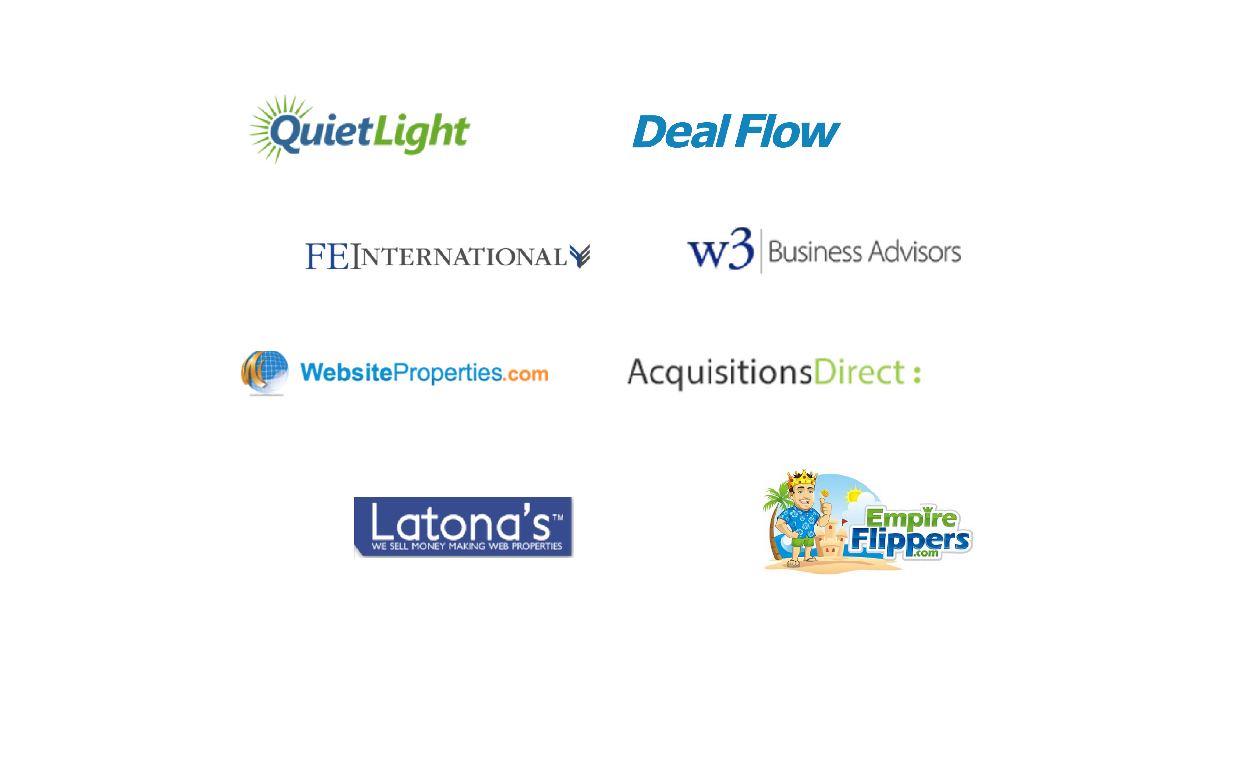Why one $200k Website is a Better Acquisition than ten $20k ones
So you’ve put aside a certain amount of spare cash and you’re trying to figure out whether you should put it all into one online business purchase or diversify by completing several acquisitions?
You’re certainly not alone. In fact, most people who enter the industry nowadays ask this exact question.
My opinion?
You should almost always go with one $200k acquisition over ten $20k ones.
Here’s why.
1. Businesses are never passive
Regardless of what some dodgy brokers or Internet Marketing ‘gurus’ try to tell you, web businesses are virtually never ‘passive’, and almost always require the owner’s time and effort, at least to an extent. (Further reading: Passive Online Businesses – Biggest Myth in the Industry)
Granted, some websites require far less time than others, but in virtually all cases there’s management effort involved, even as little as keeping an eye on key metrics and stats, ‘fire fighting’ when things break and keeping track of accounting.
With this in mind, owning and operating 10 sites that make $8k per annum each isn’t comparable to having one site that makes $96k per annum, as the overheads in terms of your own time and energy spent are always much higher with a larger number of properties.
2. Diversification is good, but only when done right
Naturally, the primary reason why someone would even consider purchasing 10 smaller businesses instead of 1 larger one is diversification.
No-one sensible could ever argue against diversification being a good thing. Especially with online businesses, there are always a smaller or larger number of risks that need to be accounted with, and even the best of the opportunities isn’t risk-free.
On the flip side, however, diversification only works if it’s done right. Over my years in working with buyers, I’ve seen several go out there and buy 5 or more sites, often all at once or not far apart, only to find themselves completely overwhelmed with the transition and what’s worse – with the ongoing management of the businesses.
The primary reason why this keeps happening is that while online businesses all appear rather similar to each other, the reality is often different. As an example, an ecommerce site that sells bike parts shares very few similarities with a content site about computer games that’s monetized through Google AdSense.
When it comes to diversification, my advice is usually to diversify, but make sure to not jump into several very different industries and/or business models all at once, and if possible, try to maintain a common element across your portfolio (e.g. an ecommerce site selling golf clubs + a content site about golf + high end travel site). This way you’ll both save yourself from going crazy, as well as gain a competitive edge by being able to cross-market your portfolio.
3. Limited Supply
Perhaps the primary reason for my argument for 1x $200k, rather than 10x$20k surprisingly doesn’t have anything to do with the properties themselves, but rather with the industry and the market.
Things would be very different if we operated in a large industry with nearly unlimited supply for good, high quality assets, but the reality is unfortunately quite the opposite.
Due to the whole industry of online acquisitions being very young, and buying and selling online businesses still being something that isn’t overly popular, there’s a very limited supply of high quality websites that end up for sale.
Because of this, finding a good acquisition candidate can be quite a struggle, especially if you’re quite particular about your requirements. Hence, trying to acquire 10 assets in a single year, in an industry where there’s a grand total of not over 200 assets listed for sale in a year would be a fairly difficult task.
4. Higher Quality / Lower Price
Based on my own observations over the last 5 or so years as both a buyer and a broker, it’s almost always the case that higher end businesses are far better.
Now, what do I mean when I say ‘better’? A couple of things, really. Primarily:
- A $200k business is usually run as a business, whereas a $20k site is typically just a hobby. To a buyer, this means that performing due diligence on a $200k asset is going to be much easier, and it’s much more likely that the seller has proper accounts, a registered business entity, etc.
- Scams are far more prevalent at the lower end of the price spectrum than at the higher end. The reason for this is quite simple – most people pay far less attention to due diligence when acquiring a $20k site, as opposed to a $200k site, making this price range an ‘easy target’ for scammers.
What’s even more interesting is that keeping the above in mind, one would expect to see $200k businesses go at much higher profit multiples than $20k ones.
In reality, the opposite is true.
Whilst the average multiple is indeed much higher in the $200k – $1M price range than in the $20k – $200k range, if you compared similar businesses (e.g. excluding sites that have only been around for a couple of months or operate dodgy / borderline illegal business models) then you’d quickly find that prices are actually much lower for larger sites.
It’s completely understandable, of course. There are simply far more people with $20k to spend than there are people with $200k to spend, increasing competition and thereby prices.
5. Are You Ready to Close in 72 minutes?
Lastly, a major problem with lower end properties nowadays, caused by this same competition that I referred to above, is closing times.
Due to the incredibly low supply and the super-high demand in the sub-$100k price range, only the buyers who are willing to close super-fast get a chance at good properties.
My reference to a 72-minute closing is a real-life scenario, by the way.
Sure, it’s not a common occurrence for a site to go under LOI in 72 minutes after listing it (the average for good <$100k sites is somewhere between 2-4 days though – still a stretch!), but those things do happen, indicating that only those who can act fast have a chance at competing with other buyers.
Now pardon my bluntness, but in order to make a purchase decision this quickly, you have to be either very experienced, or very stupid. And sadly – the latter is happening quite often, especially with some of the less-than-ethical brokerages rushing buyers into submitting offers with minimal to no due diligence done, assuring them that they’ve already done all of the necessary verification (Further reading: Dirty Tricks that Website Brokers use to Milk You).
Needless to say, having to compete with other buyers should never result in a shortened due diligence process, and you should only submit an offer and agree to a purchase once you’re 100% satisfied that you’re happy with what you’re buying, making smaller purchases often a ‘mission impossible’.
What are your thoughts?
Having voiced my personal opinion on the subject, I’d be interested to hear opinions from others in the industry. Let me know in the comments below whether you agree with me or not, and what’s your acquisition strategy.








